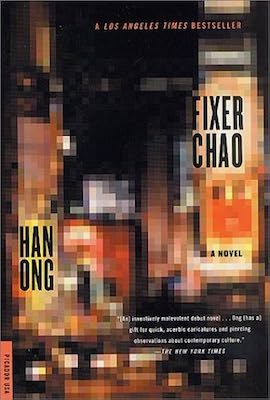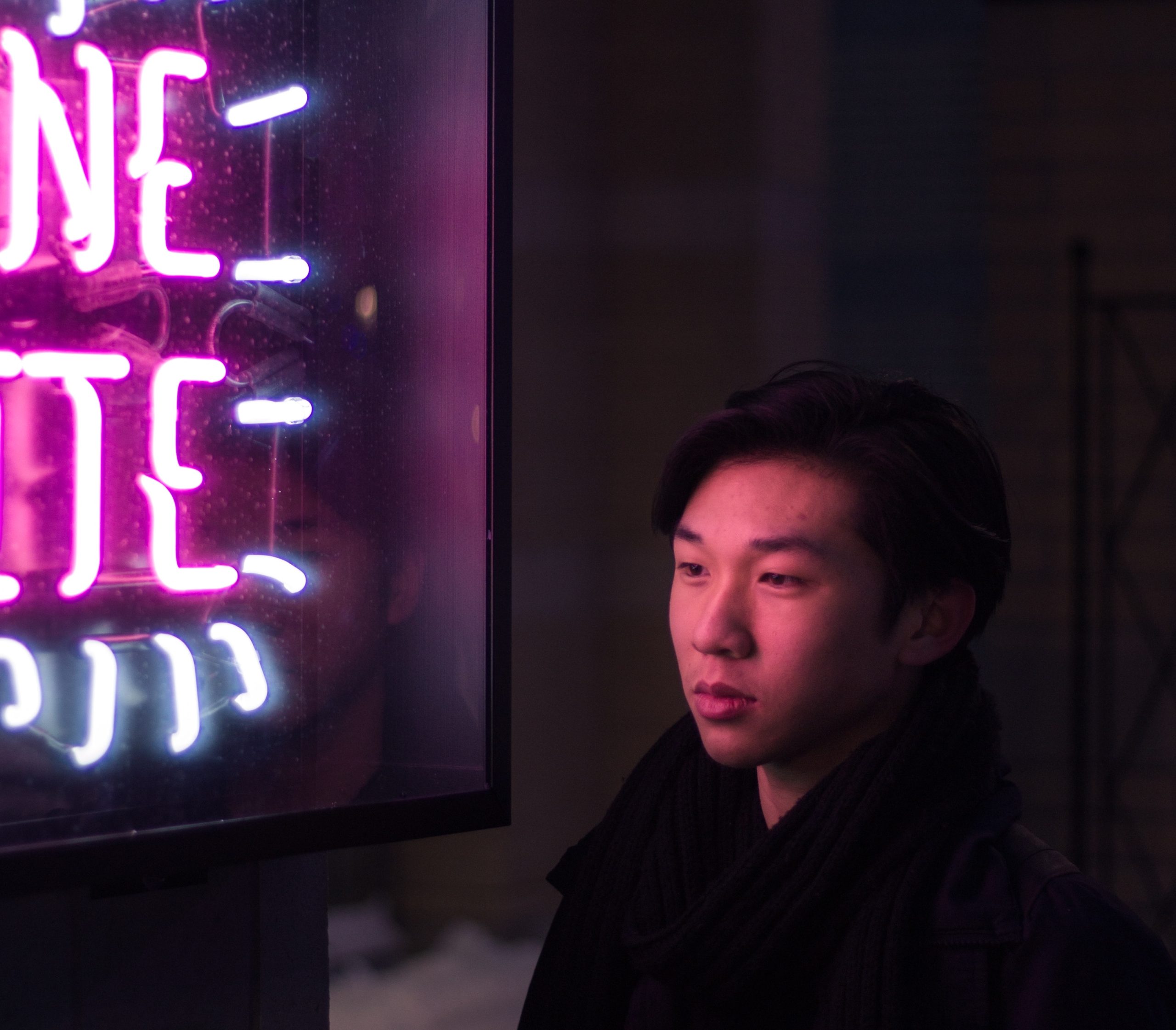When I was 16, a teacher handed me a copy of The Joy Luck Club because it was a book about “people like me.” At night, in parking lots, guys like me rattled four-bangers, hoping to leave Hangul-like skid marks on blacktops while trying to decipher the art of donuts. Guys like me tried to work up the courage to ask someone to hang, hoping to tie tongues as the sun dropped behind the evergreens. Guys like me played football, hoping to get a shot at the guy who liked to whisper chink in the hallways as he passed our lockers.
The Joy Luck Club is a fine book, but it wasn’t for a 16-year-old guy like me. No one I knew could point me to a book that was. And I, like so many other young Asian guys who couldn’t see ourselves in the posturing Holden Caufield or ever in an estate in East Egg, simply didn’t read. This is one reason I wrote The All-American. It’s a book about a Korean American high-schooler raised in a Western Washington trailer park who dreams of playing American football. However, he gets deported to South Korea and is conscripted into its army. He isn’t worldly. He has no superpowers and no advantages. He’s no Yellow Peril.
The second reason was that I was tired of being told by others who I was or ought to be—like that teacher. At the core of The All-American is the question of how much control, how many choices do we really have in defining our identities?
Fortunately, there were, and are, novels that ask this question, too.

Fixer Chao by Han Ong
A street hustler, William Paulina, aims to turn his life around when he meets a writer who is interested in burning down the system: payback against the literati who don’t like his work. With their powers combined, this Filipino street hustler becomes “Master Chao,” the elite Feng Shui master who supposedly can redecorate rich New Yorkers’ homes to bring “peace and prosperity” and other fortune cookie sentiments.
Hustling to wealth is the American dream. Playing on the prejudices and giving the upper class a comeuppance is a fantasy for anyone cast down to the lower decks. The opportunity to parody what everyone says you are for profit is the joke, but for William, who he really is, and wants to be, as a queer Asian man in America, is the question that propels this redemption tale.
Waylaid by Ed Lin
Ed Lin’s debut, Waylaid, is a darkly funny coming-of-age novel about a Chinese American boy on the cusp of his teens trying to lose his virginity. He works in his parents’ motel, a pay-by-the-hour kind of place in New Jersey, where he gets insights about the world from Johns and sex workers, families recently made homeless, the lonely, and the rest of the desperate underbelly of America. “I read enough to know that some of your own kind treat you worse than anyone else,” is one insight. “If you’re a girl, you’ve only got the television, and you keep it on because when you turn it off, you see your reflection in the black screen,” is another.
Waylaid is a book about coming of age while exposed to the bawdy side of our society and how sex is used to distract us from the working-class problems all around us.
American Son by Brian Ascalon Roley
Two half-Filipino and half-white brothers, Tomas and Gabe, are coming up in LA in the early ’90s. Dad abandoned the family. Mom works hard, and Tomas is a burgeoning hardman and gangbanger who has gotten thrown out of high school. Gabe is doing the work of the good younger brother, being quiet, doing chores, going to school, and helping his brother breed guard dogs (that Gabe, our narrator, tells us are actually “attack dogs”). After Gabe steals Tomas’s car and his prized breeding dog, Gabe runs away north, exploring the isolation he’s always felt in an American where he sometimes passes as white or Mexican. The novel starts raw and gets grittier as it grapples with the challenges of being an immigrant and an Asian American man.
Transmission by Hari Kunzru
Arjun Mehta is a quiet computer geek from India who comes to America for the dream: money, celebrities, and women. But, when he gets here, nothing works as it should. Upon arrival, rather than the job he was promised, he’s left unemployed in a sort of halfway house. Once he gets his computer job and his shot at his American love, it doesn’t go how he wants, just as the computer world collapses into a recession. His Asian-American dream seems lost. Then, out of loneliness and the faint hope of holding onto his job, Arjun creates the virus that will infect computers worldwide with the image of his dream girl: Bollywood star Leela Zahir.
Kunzru’s satire of the Silicon Valley dreamscape is funny. It subverts the geeky Asian guy stereotype by plumbing into the depths of modern corporate slavery and how colonialism is something we haven’t yet shrugged off (embodied by Guy Swift, a young entrepreneur, and wannabe suave Richard Branson) and connects the Asian American experience to those across the oceans.
No-No Boy by John Okada
One of the great wounds in Asian American history is the internment of Japanese Americans (and other Asian Americans) during World War Two. No-No Boy is about Ichiro, who was released after the War from the internment camps and prison for refusing to be drafted into the US Army (hence a “No-No” boy). But this book isn’t about the internment camps: it’s about the world after where Asian Americans struggle to find their place not only in America but within their own communities. For many in the Japanese American community, a No-No Boy was a disgrace, a cowardly man to be ostracized. Yet, many said no, for reasons such as, Why should I justify my loyalty when I was already born a citizen and plucked from streets and imprisoned? Ichiro navigates society’s prejudice outside of and inside of the Japanese American community. Add in a family relationship where a mother believes that the defeat of Japan was a hoax and the stories of many forms of wounded people returning after the war, and you get a classic Asian American novel that ought to be on any reading list.
Edinburgh by Alexander Chee
Edinburgh is about the poison of childhood abuse and how that trauma can linger well into adulthood. It’s about a young Korean American boy, Fee, who is a talented singer and is selected for a boys’ choir. The choir director molests Fee and others in the choir, and even after the director is imprisoned, the poison of trauma remains in his victims.
Stories about trauma to young men weren’t plentiful, or at least not available, when I was growing up. Without those books, many young men believe that they are stories never to be discussed. This book is about what happens to who we are when we lack the knowledge to grapple with that poison and the hope of learning to confront and heal from those traumas.
The Sympathizer by Viet Thanh Nguyen
The protagonist of The Sympathizer is a communist spy who comes to the U.S. after the fall of Saigon to spy on South Vietnamese immigrants in exile. The book is a letter addressing the “Commandant” of whatever prison he’s being held in Vietnam after his return. While a spy novel, it is less John le Carré and more Ralph Ellison in how it grapples with who we’re taught to be and what we find ourselves shaping to be. It’s darkly funny (I can’t imagine someone not laughing when reading the thinly veiled parody of the filming Apocolypse Now, the narrator takes part in) and justifiably won many awards including the Pulitzer.
Interior Chinatown by Charles Yu
Satirizing Hollywood’s depiction of Asian Americans, Interior Chinatown wears the look and structure of a screenplay. It’s about Willis Wu, a second-generation Asian American actor who is climbing the Asian typecast pyramid from “Generic Asian Man” to “Kung Fu Guy” on the show Black and White. (A show, Willis muses, that uses the racial dichotomy of Black and white because anything more would be too racially complicated for mainstream culture). Being raised in Chinatown, he dreams of leaving the stereotypical roles of Asians both in Hollywood and American culture but is unable to see beyond the limitations that have surrounded him his whole life. Willis’s pursuit of the elusive role of “Kung Fu Guy” at the expense of love and family leads the story deep into questions of identity and self-definition. It’s funny, and it’s a winner of the National Book Award.

